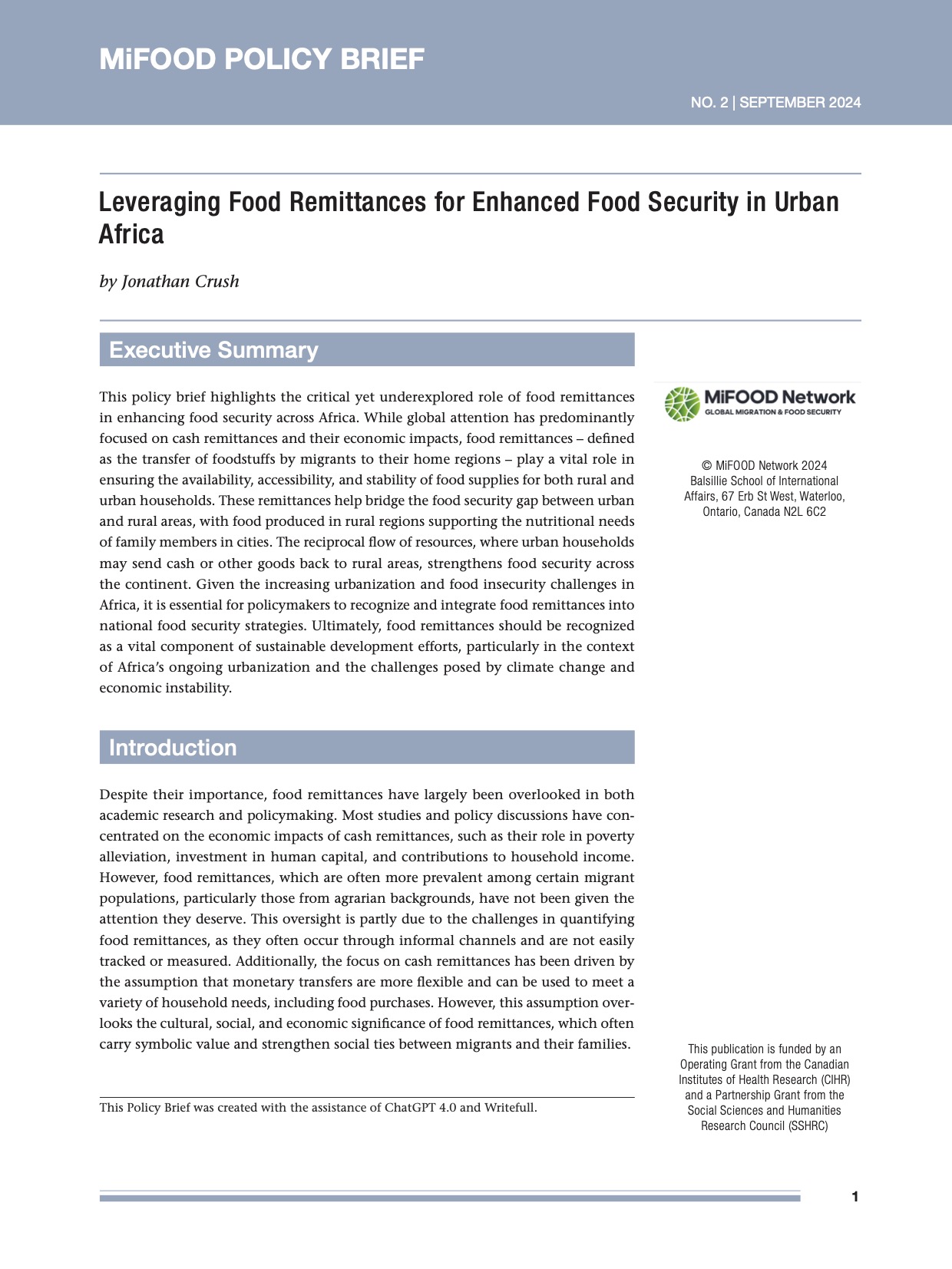This policy brief highlights the critical yet underexplored role of food remittances in enhancing food security across Africa. While global attention has predominantly focused on cash remittances and their economic impacts, food remittances – defined as the transfer of foodstuffs by migrants to their home regions – play a vital role in ensuring the availability, accessibility, and stability of food supplies for both rural and urban households. These remittances help bridge the food security gap between urban and rural areas, with food produced in rural regions supporting the nutritional needs of family members in cities. The reciprocal flow of resources, where urban households may send cash or other goods back to rural areas, strengthens food security across the continent. Given the increasing urbanization and food insecurity challenges in Africa, it is essential for policymakers to recognize and integrate food remittances into national food security strategies. Ultimately, food remittances should be recognized as a vital component of sustainable development efforts, particularly in the context of Africa’s ongoing urbanization and the challenges posed by climate change and economic instability.

